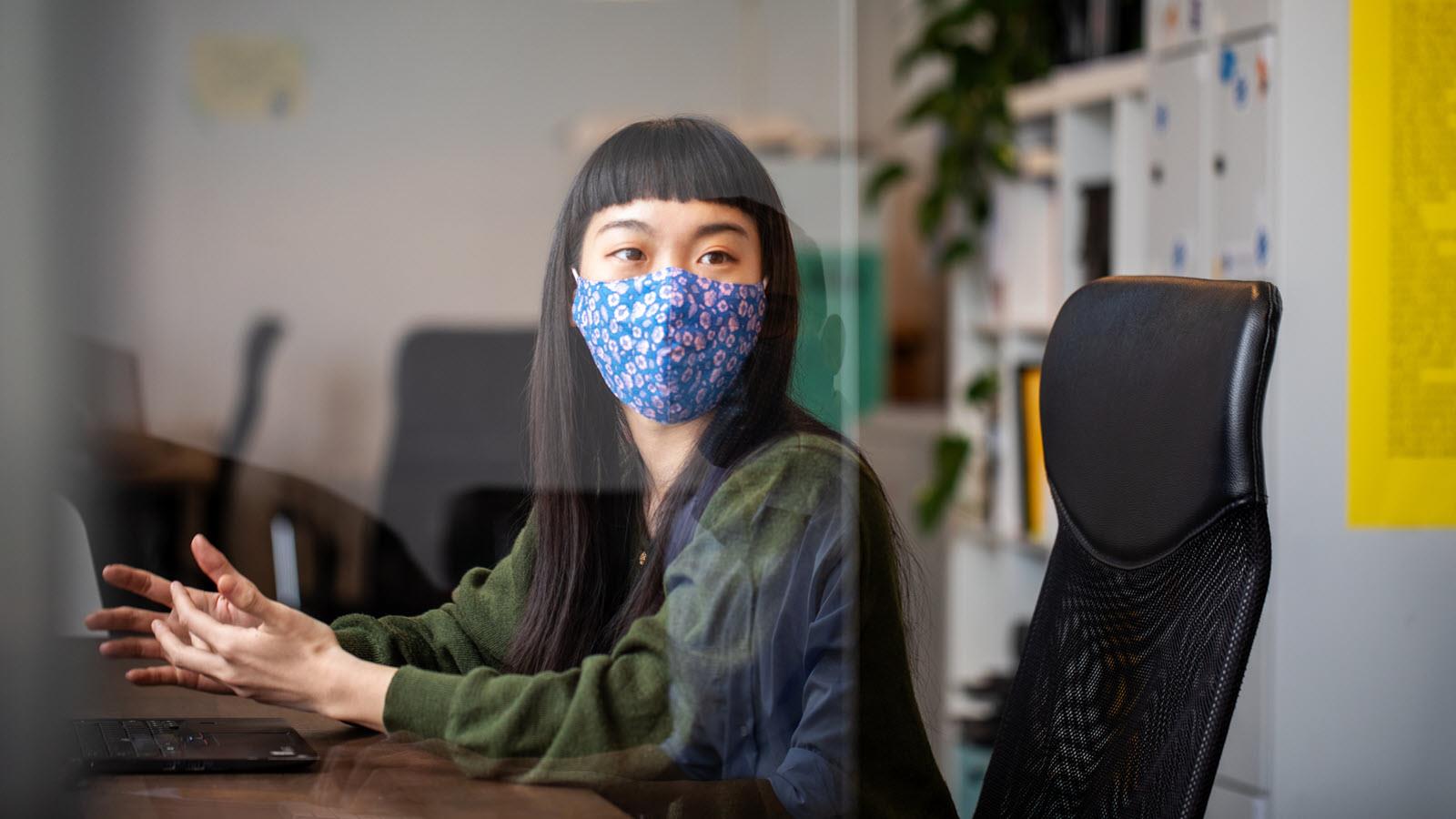You’re not alone if you have felt hurt and defensive because of someone’s comment about your choice to wear a face mask.
Before COVID-19, wearing a mask to prevent the spread of illnesses was not the subject of controversy. Immunocompromised people wore masks in public spaces to prevent infections and few noticed or commented. After the outbreaks of SARS in Asia in the early 2000s, masking was further normalized in airports and on city streets.
But differing views about how to protect the population during the COVID-19 pandemic politicized face masks, particularly during times when masks were mandatory in public places, like schools and airplanes. Fast forward to 2023 and most people have acquired some level of protection thanks to vaccines and because they were previously infected. However, the immunocompromised remain in a different category.
The U.S. Centers for Disease Control and Prevention continues to recommend masking for this group, which includes people like me, who have a primary immunodeficiency, as well as others who have received organ transplants or are cancer patients.
Here's why: We’re more vulnerable to serious infections. COVID-19 vaccines may not have elicited a robust response in patients who are immunocompromised. Additionally, a monoclonal antibody treatment originally offered as a preventive measure to protect immunocompromised people from SARS-CoV2, the virus that causes COVID-19, lost its effectiveness and is no longer recommended. The virus itself continues to mutate and now public health experts are monitoring the Arcturus subvariant.
For those of us who are immunocompromised patients, a well-fitted, high-quality protective mask is simply a medical strategy for preventing serious infections. It’s something a person may decide to use – and has a right to use – just as someone else might choose to use a wheelchair, hearing aids or other assistive device. Few would question a person’s need of a wheelchair and yet you might have heard comments like “You can take your mask off” or “Why are you still wearing that?”
This is frustrating because, of course we would rather not wear masks – for a number of reasons. We’re no different than everyone else who was tired of the hassle of mask wearing, especially on a hot day or when you’re trying to speak to someone and be understood. But we tally the pros and cons differently than those who have functioning immune systems. For us, wearing a mask doesn’t feel like a restriction on our freedom. Ironically, not masking can limit our freedom by putting our health at risk and leading to illnesses that keep us from living full lives.
Right now, wearing a mask can be doubly important for the immunocompromised as public health emergency designations end and mask requirements are lifted, even in places like doctor’s offices. With a decrease in masking in general and a public desire to move forward, here are three tips for how to manage if you’re still masking:
- Convert an awkward moment into a teachable moment. Talk to close friends and family members about why you are choosing to wear a mask. Explain why masking has been useful and explain that you will continue to do so moving forward. Many immunocompromised individuals have found that in addition to protecting themselves from COVID-19, wearing a mask has decreased infections and viruses in general, resulting in overall improved health. Help others to understand that risk tolerance is an assessment you and your doctor make.
- Advocate for yourself. If comfortable, stand up for yourself when you encounter misconceptions, ignorance or insults. Simply and calmly say: “I am immunocompromised and I need to wear a mask to protect myself.” One positive impact of COVID-19 is that the public now understands what it means to be immunocompromised. Speaking up and defending oneself when necessary can be empowering – and serves as a reminder that discrimination of any kind is not OK.
- It’s OK to feel uncomfortable. Wearing a mask can draw unwanted attention to you and your health condition. I know how uncomfortable it can feel to be the only one in the room who is wearing a mask. For many immunocompromised people, masking in 2023 means signaling to the broader world that they’re sick or live with an otherwise invisible illness. You might find yourself having to discuss your health condition more frequently.
For many of us, masking will be a part of our routine moving forward. We can frame it as an accommodation that allows us to integrate more safely in public. Explaining that to others – and feeling understood and supported – will help us live more freely.



